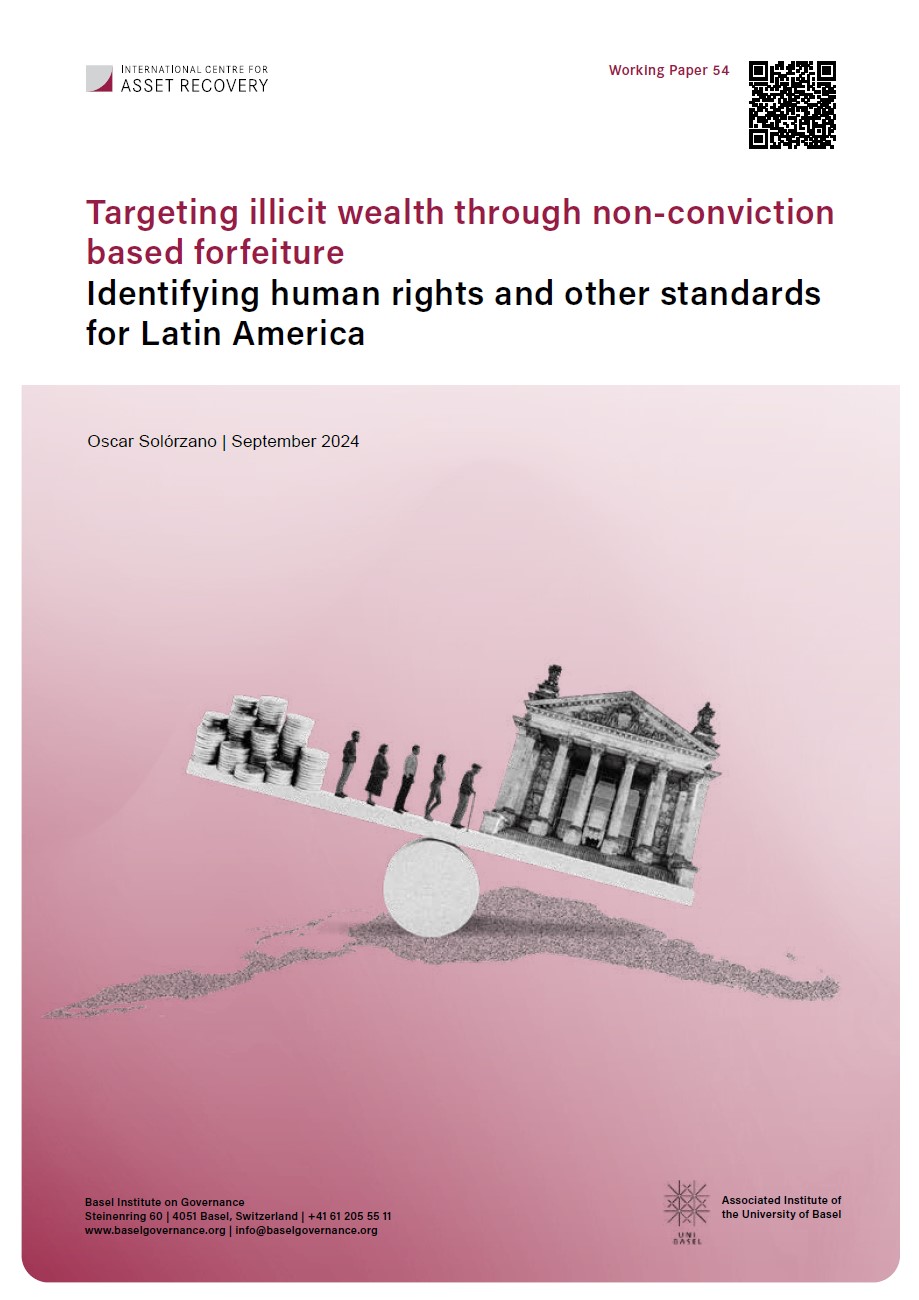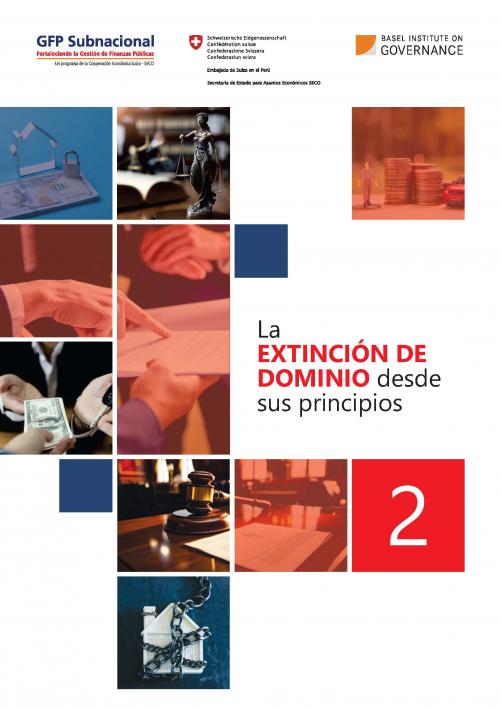Working Paper 54: Targeting illicit wealth through non-conviction based forfeiture: Identifying human rights and other standards for Latin America
This Working Paper explores the wide variety of non-conviction based (NCB) forfeiture laws in Latin America, with a special focus on the region’s predominant model, Extinción de dominio.
It argues that NCB forfeiture legislation, which allows for the recovery of stolen assets outside of criminal proceedings, can contribute significantly to a state’s criminal policy response to rampant economic and organised crime.
The paper emphasises the importance of critically reviewing and harmonising domestic practices of NCB forfeiture around emerging standards, so that they can reach their large potential in asset recovery. Ensuring their alignment with international human rights and other recognised norms and procedural rules ultimately builds trust, lends legitimacy and fosters judicial cooperation in international NCB forfeiture cases.
About this report
The paper is based on experience gained through the Basel Institute’s International Centre for Asset Recovery (ICAR), which since 2006 has supported partner countries in investigating, prosecuting and recovering assets arising from grand corruption and other crimes.
This paper is published as part of the Basel Institute on Governance Working Paper series, ISSN: 2624-9650. You may share or republish the Working Paper under a Creative Commons Attribution-NonCommercial-NoDerivatives 4.0 International License (CC BY-NC-ND 4.0).
Suggested citation: Solórzano, Oscar. 2024. ‘Targeting illicit wealth through non-conviction based forfeiture: Identifying human rights and other standards for Latin America.’ Working Paper 54, Basel Institute on Governance. Available at: baselgovernance.org/publications/wp-54.
Links and other languages



